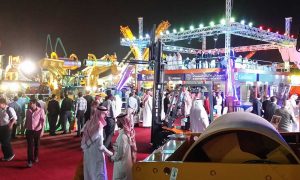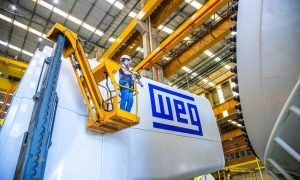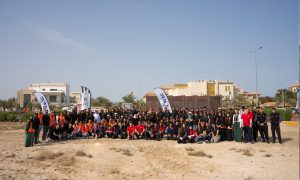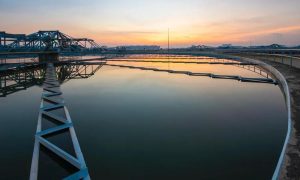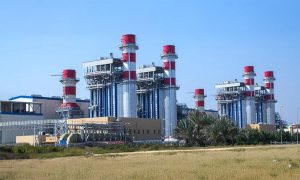Huisman announces 700t crane for handling wind turbine components
The fully-electric crane is expected to improve speed of load-out process of offshore wind turbines
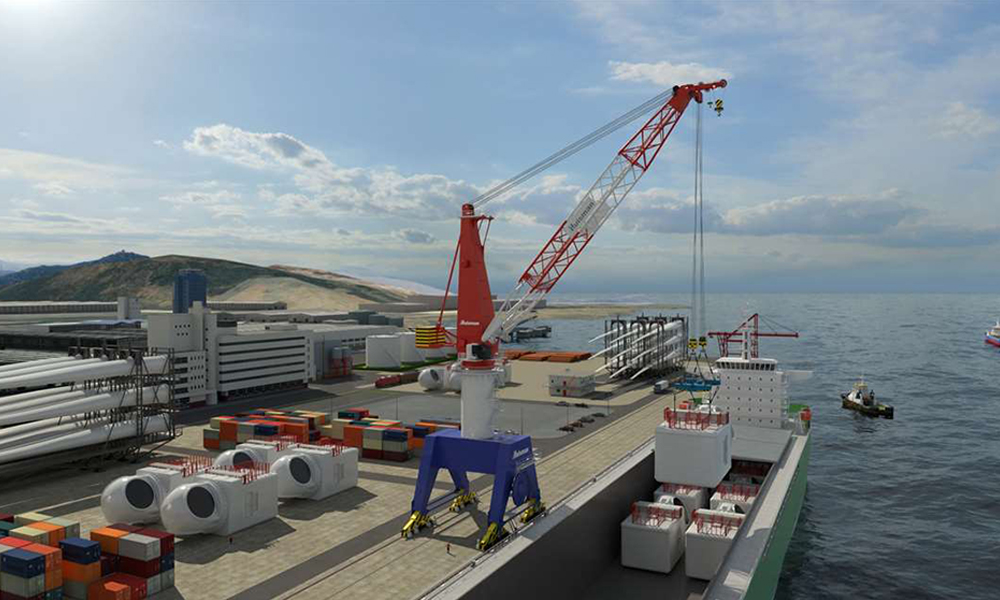
Huisman has developed a 700 tonne Travelling Quayside Crane for the load-out of offshore wind turbine components, the company has announced. The move comes as a result of rising demand for large, 2,600t and 4,000t Skyhook Cranes for the load-out of foundation pieces and installation of floating turbines.
According to Huisman, the new addition will help the load-out process of offshore wind turbine components take place significantly faster compared to the regular methods that involve crawler cranes, or a tandem-lifting by two cranes with a capacity around 200-to-300t.
The new Quayside Crane has been designed as fully electric, allowing for a direct connection to the quayside power grid. This allows regenerative energy to be directed back into the utility grid, limiting the net energy consumption of the crane.
In November 2020, Sarens launched a new electric ring crane for heavy lifts up to 99,000t.
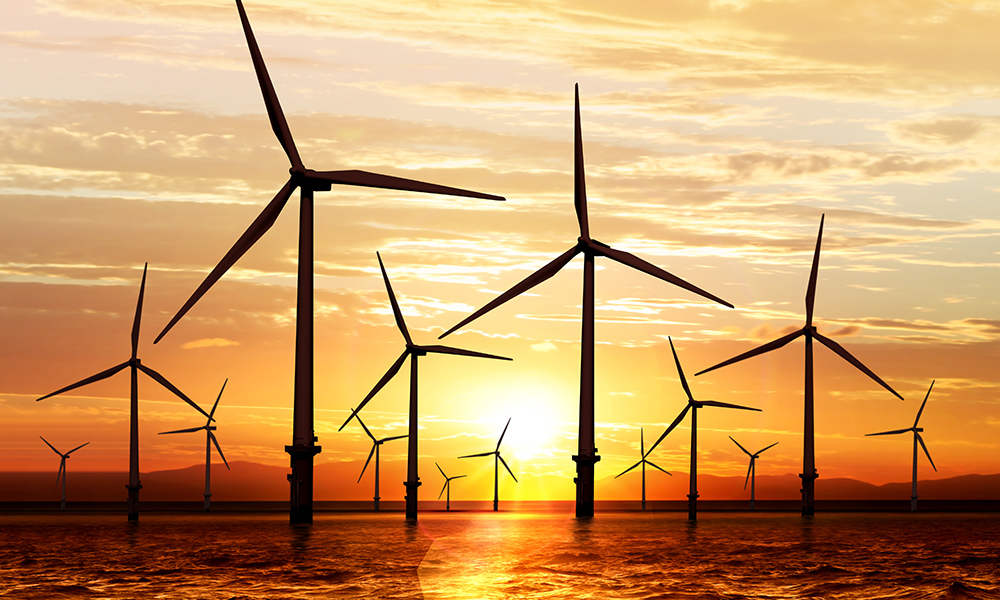
Speaking on the announcement Cees van Veluw, Product Manager Cranes at Huisman remarked, “We see a need in the offshore wind logistics market for increased efficiency in smaller ports in newly developed offshore wind areas. The traditional use of crawler cranes or multiple smaller quayside cranes would require a very large backyard. It also requires the transport vessel to be moored along the quayside for an unnecessarily long time. With this new 700t Huisman Travelling Quayside Crane, offshore wind ports can be ready for a quick load-out of turbine components in a sustainable manner.”
Although the crane is designed to travel on a track 16m wide, this can be adapted to local requirements. Capable of lifting 700t at a radius of 25m, its ability to travel at decent speed with load in the hook allows for a flexible delivery schedule of components to the load-out quayside, the firm concluded.
In May 2021, Drydocks World marked the start of works on its second project for the HKZ offshore wind farm, while in June 2022, Mammoet said it used a floating crane to install a bridge for The Red Sea Project in Saudi Arabia.


